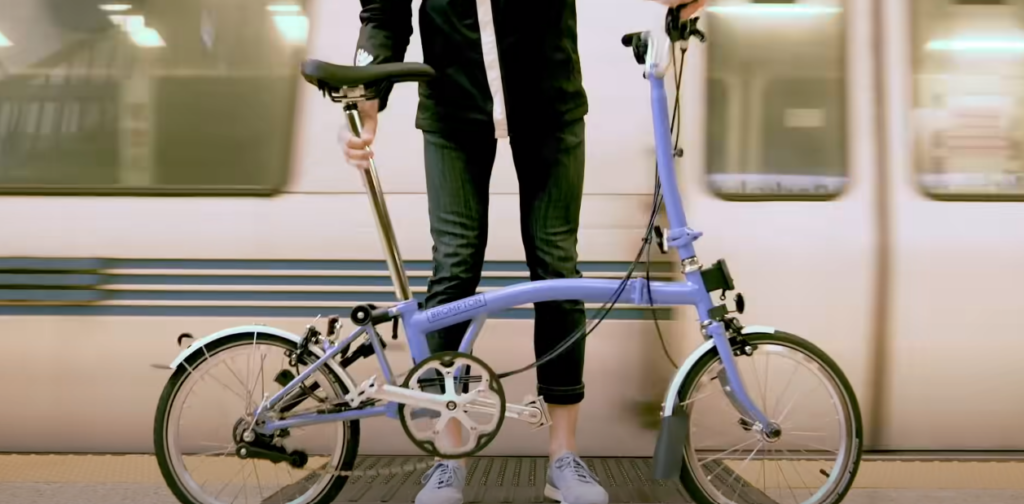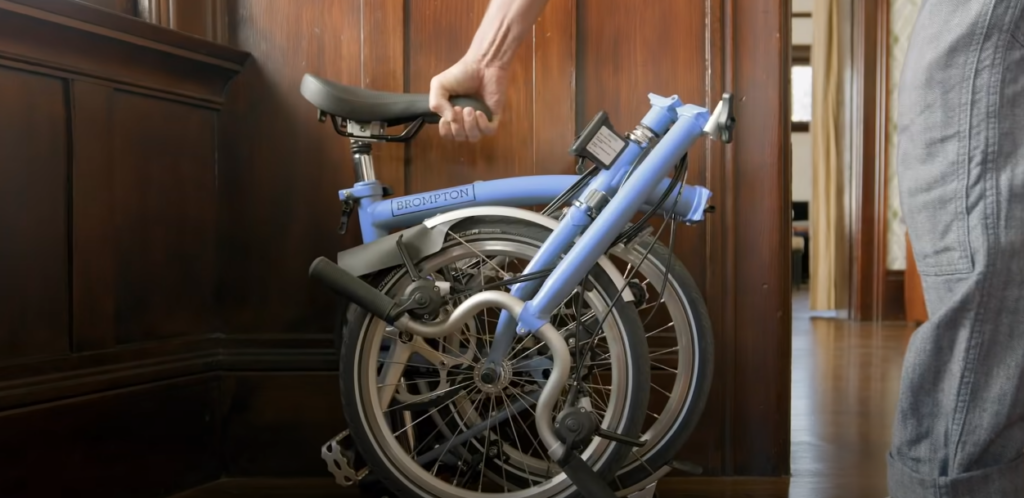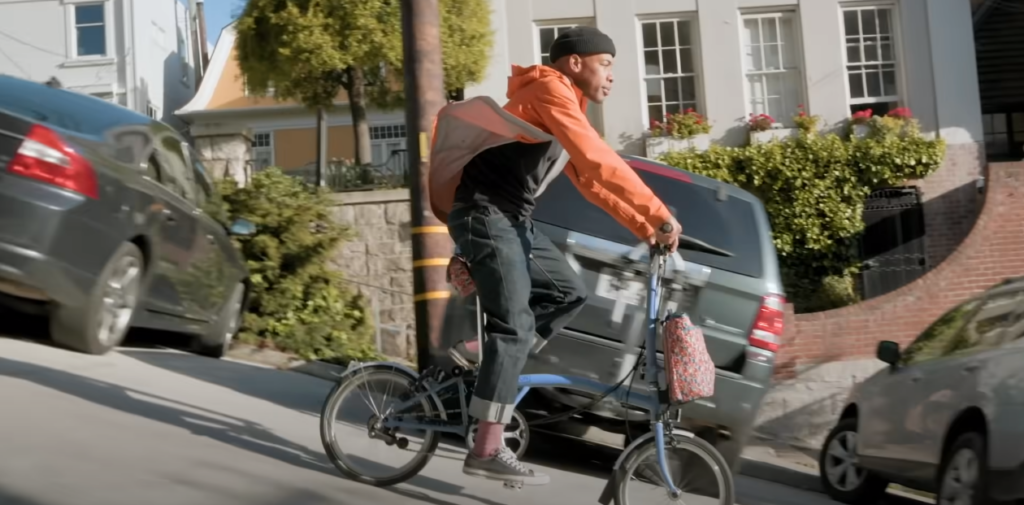In the ever-evolving world of transportation, innovation is the key to making our lives more convenient and sustainable. One such innovation that has gained significant attention in recent years is the folding bike. A folding bike, as the name suggests, is a type of bicycle that is designed to be folded into a compact size, allowing for easy storage and transportation. With its unique design and practicality, the folding bike has become a popular choice for urban commuters, travelers, and those looking to reduce their carbon footprint. In this article, we will delve into the world of folding bikes, exploring their features, benefits, potential drawbacks, and frequently asked questions.
Features of Folding Bikes
Folding bikes have gained popularity for their unique characteristics that set them apart from traditional bicycles. These innovative two-wheelers offer a blend of convenience, portability, and adaptability that make them ideal for urban commuters, travelers, and enthusiasts. Let’s delve into the educational breakdown of the key features that make folding bikes stand out:
1. Foldability
The hallmark feature of folding bikes is their exceptional ability to transform into a compact size. This transformative process is achieved through the integration of sophisticated mechanisms such as hinges, locks, and quick-release levers. When folded, the bike’s frame, wheels, and components strategically collapse, resulting in a significantly reduced footprint. This remarkable feature provides numerous benefits:
- Easy Storage: Folding bikes can be effortlessly stored in tight spaces, making them suitable for apartments, offices, and even small storage areas. Traditional bicycles can be cumbersome to store indoors, often requiring dedicated racks or hooks. Folding bikes eliminate this challenge, as they can be discreetly placed in closets, under desks, or against walls;
- Transportation Convenience: The compact size of folding bikes enables users to carry them onto various modes of public transportation. Whether it’s a subway, bus, or train, folding bikes can accompany riders without imposing space constraints on other passengers. This intermodal versatility encourages eco-friendly commuting habits by seamlessly integrating cycling with public transit;
- Travel-Friendly: For avid travelers, folding bikes provide an excellent solution for exploring new destinations. These bikes can be folded and stowed in car trunks, RVs, boats, or even airplanes, allowing adventurers to continue their cycling journeys wherever they go.
2. Portability
The portability of folding bikes is a game-changer for those seeking convenience in their daily commute or leisure rides:
- Easy Carrying: The compact design of folding bikes makes them easy to carry when not in use. Many models come equipped with built-in handles or carrying bags, further enhancing their portability. This is a significant advantage over traditional bikes that require additional equipment like bike racks for transportation;
- No Bike Racks Needed: Traditional bikes often necessitate external bike racks for transportation, which can be bulky and cumbersome. Folding bikes eliminate this requirement, reducing the need for specialized infrastructure and promoting cycling as a practical mode of transportation.
3. Adjustability

Folding bikes offer a level of customization to suit riders’ comfort and preferences:
- Adjustable Components: Many folding bikes feature adjustable handlebars, saddles, and stems. This adaptability allows riders to fine-tune their riding position, enhancing comfort during short commutes or extended rides. Riders of varying heights and body types can find their optimal riding configuration, reducing strain and discomfort.
4. Variety of Styles
Folding bikes are not confined to a single style; they cater to a diverse range of cycling preferences:
- Commuter Folding Bikes: Designed for urban environments, commuter folding bikes prioritize comfort and practicality. They often come equipped with features like fenders, racks, and lights, making them suitable for everyday city commuting;
- Mountain Folding Bikes: Adventure seekers can opt for mountain folding bikes that offer off-road capabilities. These bikes boast rugged tires, suspension systems, and durable frames to tackle challenging terrains while remaining foldable for easy transportation;
- Road Folding Bikes: Ideal for enthusiasts who enjoy fast-paced rides, road folding bikes feature lightweight frames, narrow tires, and efficient gearing systems for optimized performance on smooth roads;
- Electric Folding Bikes: Electric folding bikes combine the convenience of foldability with the assistance of an electric motor. These bikes are well-suited for longer commutes or hilly terrains, providing an extra boost to the rider’s pedaling efforts.
5. Materials
The construction of folding bikes employs lightweight materials for enhanced manageability:
- Aluminum: Many folding bike frames are crafted from aluminum, known for its durability and lightness. Aluminum frames offer a balance between strength and weight, contributing to a more enjoyable riding experience;
- Titanium: Some high-end folding bikes use titanium frames, which offer a unique combination of strength, corrosion resistance, and lightweight properties. Titanium frames provide a smooth ride quality and can endure various weather conditions;
- Carbon Fiber: Carbon fiber folding bike frames are prized for their exceptional lightness and stiffness. These frames excel in performance and can absorb road vibrations, resulting in a smoother ride.
6. Compact Storage

The compactness of folding bikes simplifies storage logistics:
- Small Apartments: Urban dwellers facing space constraints can easily accommodate folding bikes in apartments or studios where storage space is limited. These bikes seamlessly fit into corners or closets, eliminating the need for dedicated storage rooms;
- Workplaces: Folding bikes are a practical solution for professionals who commute to work. Once at the office, these bikes can be discreetly stored under desks or in designated storage areas, minimizing clutter and maximizing workspace efficiency.
Benefits of Folding Bikes
Folding bikes offer numerous advantages that make them an attractive option for a wide range of individuals. Here are some key benefits:
| Aspect | Description |
|---|---|
| Multimodal Transportation | Folding bikes are a versatile solution for combining various modes of transportation. Easily transition from cycling to public transit, saving time and avoiding parking hassles. |
| Convenience | Folding bikes eliminate the need for bike racks and theft concerns. They can be folded and carried, ensuring your bike is always with you. |
| Health and Fitness | Similar to traditional bikes, folding bikes offer cardiovascular exercise and improve overall fitness. Use them for daily commuting to incorporate exercise into your routine. |
| Environmental Impact | Opting for a folding bike reduces carbon footprint compared to cars or regular bikes, promoting a more sustainable environment. |
| Exploration | Folding bikes aren’t limited to cities; they’re great for road trips, camping, and trail exploration, offering the freedom to discover new places. |
| Storage Solutions | With their foldable design, these bikes require minimal storage space. Store them in closets, under desks, or car trunks, perfect for those with limited room. |
Drawbacks of Folding Bikes

While folding bikes offer a range of benefits, there are also some potential drawbacks to consider:
- Limited Performance: Folding bikes may not offer the same performance as full-sized bikes, particularly when it comes to speed and stability. The smaller wheels and frame can lead to a slightly different riding experience;
- Cost: High-quality folding bikes can be expensive due to their specialized design and materials. However, they are often considered a long-term investment that pays off in convenience and versatility;
- Maintenance: Some folding mechanisms may require occasional maintenance to ensure they function properly. Regular checks and adjustments are necessary to prevent issues from arising;
- Weight: While folding bikes are designed to be lightweight, some models can still be heavier than traditional bikes due to the folding mechanisms. This might impact the ease of carrying the folded bike for some individuals.
Conclusion
Folding bikes have emerged as a versatile and innovative solution for urban mobility challenges. Their compact design, portability, and practicality make them an excellent choice for commuters, travelers, and anyone looking for an efficient and eco-friendly mode of transportation. While they may have a few drawbacks, the benefits they offer far outweigh these concerns. With the variety of styles available and the convenience they bring to everyday life, folding bikes are undoubtedly changing the way we navigate our cities and explore the world around us.
For better understanding, check out this video link that demonstrates the folding process of a folding bike:
FAQ
The time it takes to fold or unfold a folding bike varies depending on the model and the familiarity of the rider with the folding mechanism. With practice, most riders can fold or unfold their bike in under a minute.
Yes, in most cases, you can take a folding bike on an airplane. Many airlines treat folding bikes as regular luggage when folded. However, it’s essential to check with the airline beforehand regarding their specific policies.
Folding bikes can handle longer rides, but it’s important to choose a model that offers a comfortable riding position and adequate gear ratios for varying terrains.
Folding bikes can handle different weather conditions just like regular bikes. However, it’s a good idea to clean and maintain your folding bike more frequently if you regularly ride in wet or muddy conditions.
Yes, many folding bikes come with racks or panniers that allow you to carry items while riding. Some models also offer the option to attach baskets or bags to the frame.
Many folding bike models are adjustable and can accommodate riders of various heights. However, it’s recommended to test ride a few models to find one that offers a comfortable fit for your height.
